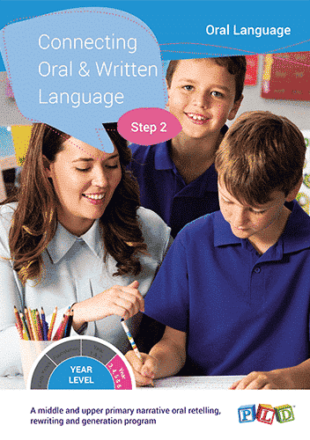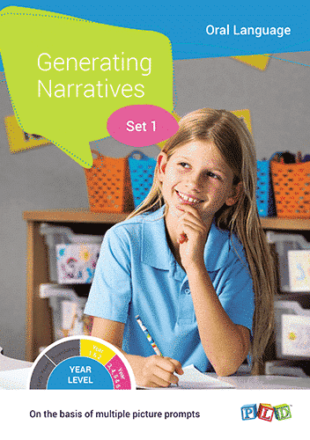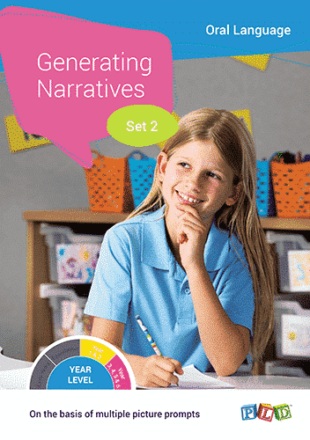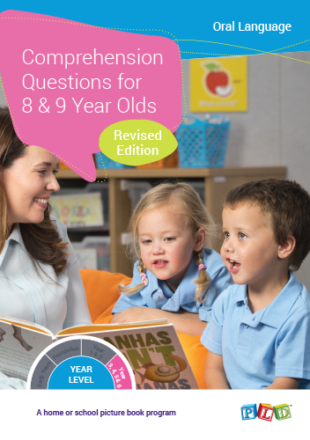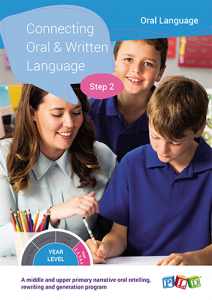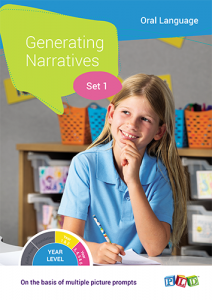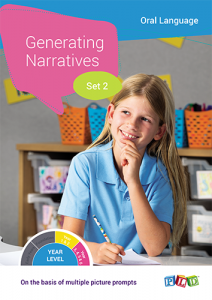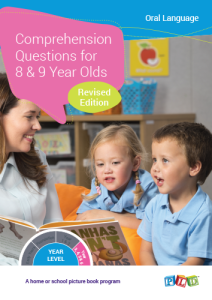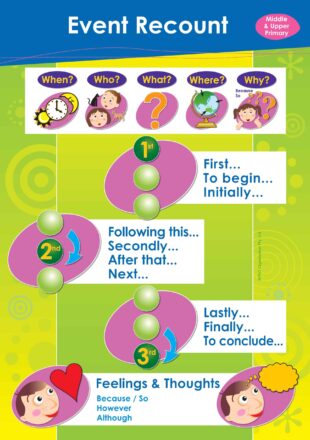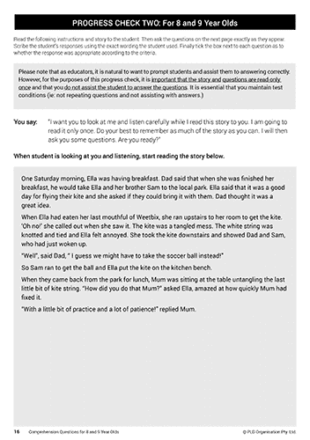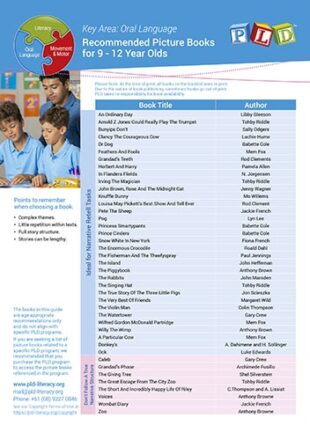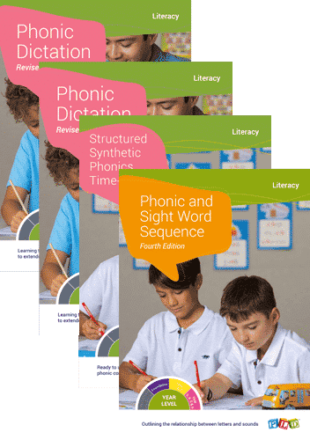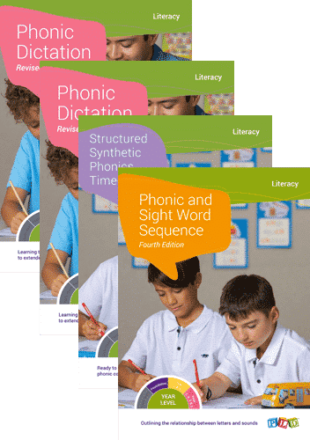| Book |
Essential Year 3, 4, 5 & 6 Oral Language Starter Pack
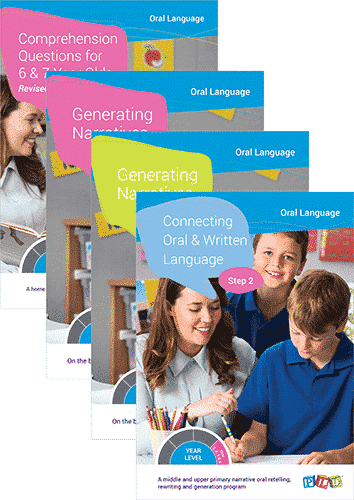
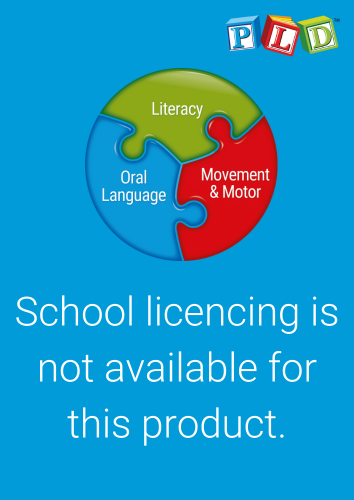
PLD has prepared an Upper Primary Oral Language pack of 4 essential resources to help students achieve the required skills to master oral language.
Between Year 3 and 6, students need to be able to:
- Read a range of material and demonstrate inferential, evaluative, appreciative, and reorganisation levels of comprehension.
- Transfer the rehearsed oral language sentence structure and detail to written genres.
But how do you begin? This bundle of essential resources will assist.
The Essential Upper Primary Oral Language Starter Pack includes:
- Connecting Oral and Written Language – Step 2
- Generating Narratives – Set 1
- Generating Narratives – Set 2
- Comprehension Questions for 8 and 9 Year Olds
Other Oral Language Starter Packs:
What is Oral Language
Oral language refers to the act of speaking and listening. The main components of the oral language skill set include word knowledge (vocabulary); sentence structure (grammar); language understanding (semantic and comprehension ability); and structured thinking (or the ability to elaborate, organise and sequence thoughts).
While poor oral language skills do not prevent children from reading, the long-term impact is concerning. By middle primary school, when both the curriculum and reading material increase in difficulty, a significant number of students will struggle to keep up with the demands of the curriculum if they have poorly developed language skills.
Implementing Oral Language in Year 3, 4, 5 & 6
Typically there is a significant range of ability in the majority of middle and upper primary classrooms. Some students will present with junior primary skills, while others will be above their age-related peers.
Catering to this wide range in ability is central to the PLD process. While well-developed oral language skills are critical for gaining an academic understanding of content and information as students, oral language skill development is still required for many classrooms.
Supporting students who are experiencing difficulty, while extending students who are more than capable, is central to PLD’s Structured Synthetic Phonic (SSP) offering.
Maximising Oral Language Outcomes with Evidence-Based Programs
PLD has written many programs which can assist in developing strong oral language skills and literacy skills. Speech pathologists have been central to the design of both the literacy and language range. The programs are ideal for first-language English speakers as well as those students whose first language is a language or dialect other than Standard Australian English. By strengthening oral language skills, students’ literacy skills will typically benefit.
Essential Year 3, 4, 5 & 6 Oral Language Starter Pack – School Licence


School licensing options are currently being developed to allow schools to share products with staff electronically (e.g. saved on servers or accessible within online platforms) and will be available soon. If you would like to be notified when this offering is available, please express your interest here.
Books: PLD’s books may be used by the authorised purchaser within their classroom, however there are restrictions regarding modifying, copying or sharing. Full details can be found here.
School Licences: A School Licence allows access to a resource to be shared with an unlimited number of employees who are employed by the ‘Authorised purchaser’. These resources can be accessed by multiple users simultaneously and can be printed (subject to restrictions) or displayed by employees of the ‘Authorised purchaser’ within their classroom. Learn more here.
Downloadable resources & screening tools: These resources can be viewed, downloaded, printed and shared providing the resources are not modified in any way. Learn more here.
Breaches of Australian Copyright Law are taken seriously and may result in legal action being taken. Full copyright information can be found. Learn more here.
Additional information
Connecting Oral and Written Language - Step 2
| Weight | .88 kg |
|---|---|
| Dimensions | 30 × 21 × 1 cm |
Generating Narratives - Set 1
| Weight | .50 kg |
|---|---|
| Dimensions | 30 × 21 × 1 cm |
Generating Narratives - Set 2
| Weight | 0.50 kg |
|---|---|
| Dimensions | 30 × 21 × 1 cm |
Comprehension Questions for 8 and 9 Year Olds
| Weight | .54 kg |
|---|---|
| Dimensions | 30 × 21 × 1 cm |



